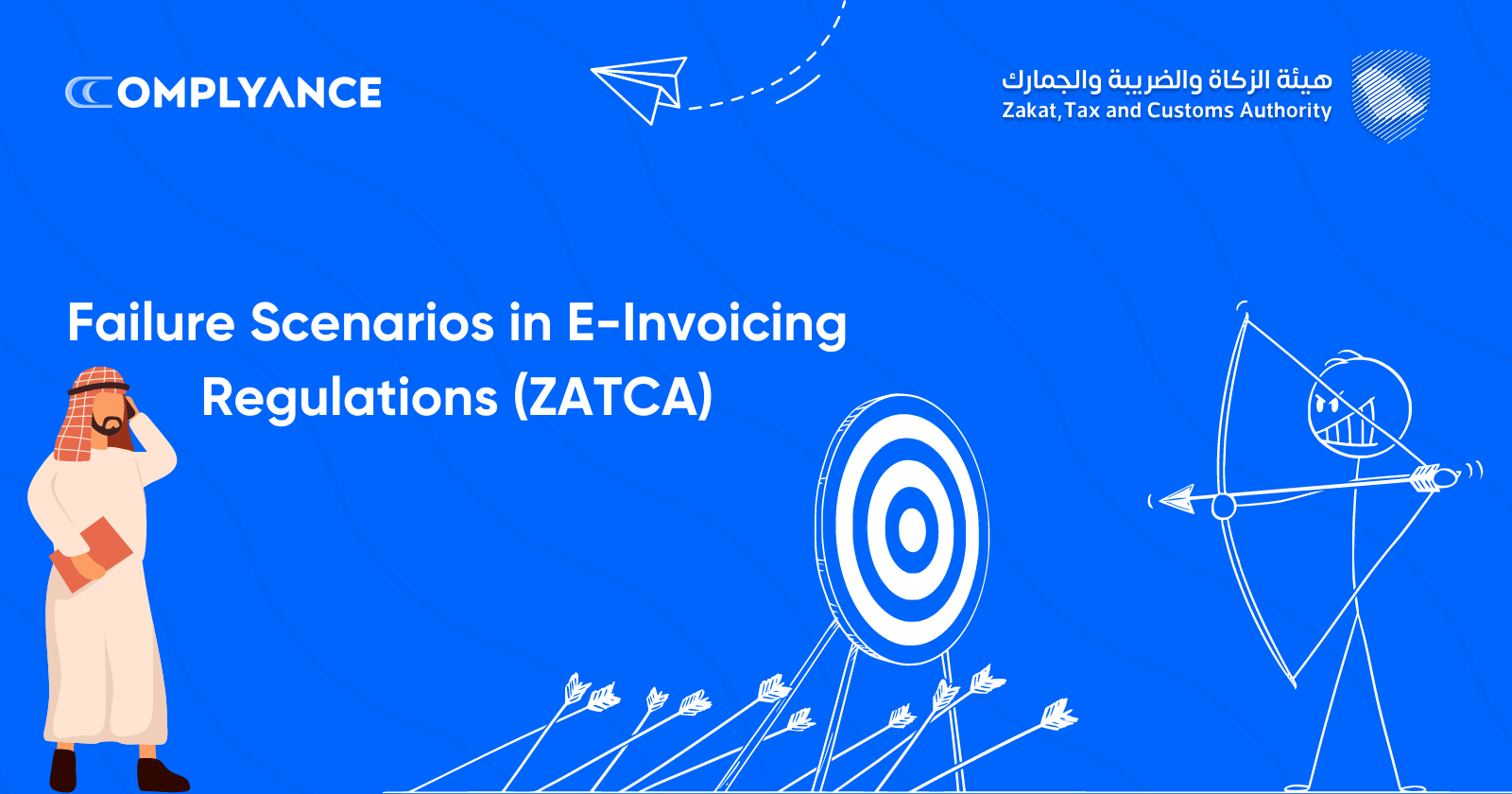Failure Scenarios in E-Invoicing Regulations (ZATCA)
 Ajith Kumar M
Ajith Kumar M
Introduction
The digital transformation of financial processes has led to the widespread adoption of e-invoicing in various industries. E-invoicing offers numerous benefits, such as improved efficiency, reduced costs, and enhanced transparency. However, the implementation of e-invoicing regulations, such as the ZATCA (Zakat Tax And Customs Authority), can be accompanied by several failure scenarios. In this blog post, we will explore the potential failure scenarios in e-invoicing regulations and discuss the challenges faced in general both by B2B and B2C contexts.
Common Failure Scenarios that Arise when Issuing E-Invoices
Non-compliant Invoices: One of the main failure scenarios is businesses generating or exchanging e-invoices that do not meet the required standards and formats outlined by ZATCA. This could be due to technical issues, incorrect data, or non-adherence to the prescribed protocols.
System Integration Problems: Incompatibility between different invoicing systems used by businesses can lead to failures in sending or receiving e-invoices. Integration issues may arise due to differences in data formats, communication protocols, or software versions.
Data Inconsistencies: Incorrect or mismatched information on e-invoices, such as inaccurate invoice numbers, wrong tax amounts, or missing mandatory fields, can result in compliance failures.
Unauthorized Access or Data Breaches: Security vulnerabilities in e-invoicing systems can expose sensitive business and customer data. Unauthorized access or data breaches may occur due to weak authentication mechanisms, inadequate encryption, or other vulnerabilities, potentially leading to compliance failures.
Incomplete or Delayed Submission: Businesses may fail to submit e-invoices within the prescribed timelines or fail to include all required information. This can result in penalties or non-compliance with ZATCA regulations.
Customer Non-Acceptance: Some consumers may refuse to accept e-invoices, preferring traditional paper-based invoices. This can pose challenges for businesses that are required to comply with e-invoicing regulations.
Lack of Customer Awareness: Consumers may be unaware of the e-invoicing process or may not have the necessary technical infrastructure to receive and process e-invoices. This can result in non-compliance for businesses attempting to issue e-invoices.
Technical Difficulties: Issues related to email delivery, attachment handling, or compatibility with consumer software or devices can hinder the successful delivery and acceptance of e-invoices.
Data Privacy Concerns: Consumers may express concerns about the security and privacy of their personal information when transmitted electronically, potentially leading to resistance or non-compliance with e-invoicing regulations.
Conclusion:
The implementation of e-invoicing regulations (ZATCA) presents unique challenges in various sectors. Non-compliant invoices, system integration problems, data inconsistencies, unauthorized access, and incomplete or delayed submissions can hinder compliance and cause issues in the e-invoicing process. In addition, there are scenarios specific to the B2C sector, such as customer non-acceptance, lack of awareness, technical difficulties, opt-out challenges, and data privacy concerns.
To ensure successful e-invoicing implementation, businesses and regulatory bodies must address these failure scenarios. They should focus on enhancing technical standards, promoting interoperability between different systems, educating stakeholders about the benefits of e-invoicing, simplifying opt-out procedures, and bolstering data security measures. By overcoming these challenges, the adoption of e-invoicing can streamline financial processes, reduce costs, enhance transparency, and drive efficiency in transactions, ultimately benefiting businesses and consumers alike.
Contact Us:
If you have any questions or queries, please post them in the comments section below. We are here to assist you and provide further clarification on the failure scenarios discussed in this blog post. Additionally, if you have any other doubts or require further assistance, you can reach out to us through our WhatsApp or call at +91 8778237303 or mail us at sales@complyance.io. We are dedicated to helping businesses navigate the complexities of e-invoicing regulations.
To stay updated on the latest developments and receive valuable insights, make sure to subscribe to our YouTube channel at https://www.youtube.com/@complyance. Our channel offers a wealth of information related to compliance and regulatory matters, including e-invoicing regulations.
At Complyance.io, we understand that complying with ZATCA Phase 2 invoicing regulations can be overwhelming. That's why we offer a simplified compliance platform. By leveraging our APIs, you can streamline your invoicing processes, ensure adherence to regulations, and free up valuable time to focus on growing your business.
We look forward to assisting you and helping your business thrive in the e-invoicing landscape!
Subscribe to my newsletter
Read articles from Ajith Kumar M directly inside your inbox. Subscribe to the newsletter, and don't miss out.
Written by
